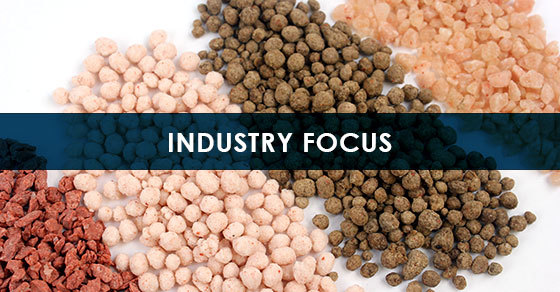Australia, a nation that has previously relied solely on imports of potassium, is quickly becoming a hotbed for potash production, particularly when it comes to the high-value MOP alternative, SOP (sulfate of potash).
SOP exhibits characteristics that make it especially suitable for many Australian soils compared to MOP, and several SOP projects are underway in the country. Here’s why.
About Potash & SOP
Potash serves as a source of potassium in crop production. One of the three primary macronutrients, potassium is often known as the quality nutrient, for its role in producing a high-quality product. Potash is mined all over the world and is essential to meeting food security and nutrition needs. The majority of potash used in agriculture today is MOP (aka. muriate of potash or potassium chloride/KCl), but potassium sulfate, also known as SOP or sulfate of potash, is quickly gaining traction, boasting several advantages over MOP.
Unlike MOP, SOP is low in chlorides, which are damaging to many crops, notably high-value fruits, vegetables, and nuts – all of which are experiencing growing demand. Also in contrast to MOP, potassium sulfate provides the essential micronutrient sulfur, providing added nutritional value. SOP is also favored in many settings because despite being a salt, it exhibits a lower salinity.
SOP is primarily extracted from brines. Extracted SOP may be sold as a powder, or further processed into compaction granules, or rounded granules produced via the pelletizing process.
Factors Driving Demand for Potash Production and SOP in Australia
Several factors are making domestic potash production, and particularly SOP, more attractive for Australia.
Growing Demand for Potash
Potash demand has generally been on the rise as global population balloons and soils become increasingly depleted. Some in the industry even anticipate a shortage of potash in the coming years. Western Australia’s government has recognized the opportunity at hand and lowered land rental rates for potash projects in an effort to encourage development of the industry.
In 2018, MOP sales hit a 14-year high in Australia, according to industry analyst Argus Media. Demand for potash has especially surged in China and Asia, where food requirements are constantly on the rise. One Australian project developer recently signed an off-take agreement for sales of SOP into Bangladesh, Cambodia, Japan, Malaysia, Philippines, South Korea, Sri Lanka, and Taiwan.
As demand for quality fruits and vegetables grows, high-quality potash production is needed to improve crop qualities such as taste, appearance, and shelf life.
Matt Shackleton, executive chairman of Australian Potash, is quoted by SBS News discussing the scramble for SOP in particular:
“Demand for this type of potash, because it promotes growth of those higher-quality foods, is unprecedented right now.”
Demand for Domestic Supply
Although home to several salt lakes, Australia has previously satiated their potassium needs through imports. The country is looking to start up domestic potash production in part as a way to provide a locally available, affordable nutrient source for growers.
This is especially true with SOP, since it already comes at a higher cost due to a more complicated production process. Importing the product further raises the cost, limiting the product to use on high-value crops. A local supply would provide a more affordable source of the much-needed nutrient to growers and allow it to be used on a broader range of crops.
Australia Soil Conditions
Soil conditions in the nation are also contributing to the need for more potash. Many of Western Australia’s soils are deficient in potassium, particularly where soils are sandy and rainfall is high. South-eastern Australia has also been showing a slow decline in available potassium in their soils.
Additionally, with many Australian soils suffering from a high salinity, this is further encouragement for the use of SOP over MOP.
Conclusion
The growing demand for potassic fertilizers has prompted Australia to invest in domestic potash production of the previously imported nutrient. A number of projects are currently underway in the nation, all focused on the high-value SOP product, which offers many benefits to Australian soils.
From potash dryers to complete pelletizing lines, FEECO is a leading producer of potash processing equipment, relied on by the industry’s top players. We also offer extensive batch and pilot testing capabilities, as well as parts and service support. For more information on our potash equipment and services, contact us today!

